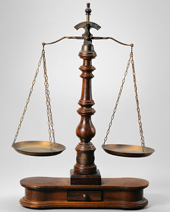Issues relating to corruption in international arbitration come under scrutiny in the latest supplement to the International Chamber of Commerce (ICC) International Court of Arbitration Bulletin. It’s an ICC publication for dispute resolution practitioners and scholars.
Titled Tackling Corruption in Arbitration, the supplement features three in-depth articles and extensive extracts from previously unpublished arbitral awards rendered between 2001 and 2009 in cases administered by the International Court of Arbitration of the International Chamber of Commerce (the Court). The awards provide illustrations of situations in which arbitral tribunals have or have not found evidence of corruption, the criteria on which such findings were based and the remedies applied.
“One of the greatest challenges for arbitrators is how to obtain and assess evidence of practices that are inherently secret,” said Court Secretary General Andrea Carlevaris, in a foreword. Mr Carlevaris expresses the hope that, by providing practical examples of how arbitrators have approached the key questions of standard of proof and circumstantial evidence, the supplement will make a useful contribution to the continuing fight against corruption.
In an article titled Using Red Flags to Prevent Arbitration from Becoming a Safe Harbour for Contracts that Disguise Corruption, Vladimir Khvalei, head of Baker & McKenzie’s CIS Dispute Resolution Practice in Moscow and a Vice-President of the Court, alerts arbitrators to the kinds of circumstances that may point to the existence of corruption in a business deal. “Disputes arising from such deals are often referred to arbitration in the belief that arbitration is less likely to expose the true nature of their dealings than if the dispute were referred to the courts,” Mr Khvalei said. He proposes practical checklists to help identify circumstances that may point to, confirm or disprove suspicions of corruption.
In concluding their review of ICC experience of dealing with corruption in arbitration, Managing Counsel of the Court Christian Albanesi, and General Counsel of the Court and ICC Emmanuel Jolivet, note: “ICC has confirmed its uncompromising opposition to corruption and bribery as unacceptable impediments to the development of international trade. If there is more talk about corruption in arbitration now than ever before, it should not be thought to reflect an upsurge in the number of cases involving corruption, but rather the increasing tendency of arbitrators, parties and even third parties to raise the issues of corruption and bribery whenever their presence is suspected and it is felt necessary to ensure that they have been given due consideration in the course of the proceedings.”
ICC’s first anticorruption initiative dates back to 1975 when the world business organization set up an ad hoc committee on extortion and bribery in international commercial transactions. In the new supplement, Francois Vincke, Vice-Chair of the ICC Commission on Corporate Responsibility and Anti-Corruption, briefs readers on more recent initiatives that have been and are being undertaken, not only by ICC but also by other international organizations, to combat corruption, and the impact of those initiatives on arbitration. These include the launch of ICC’s anti-corruption clause in 2012 and the publication in 2013 of the ICC Ethics and Compliance Training Handbook, which are intended to help equip companies with the necessary in-house expertise to build ethics and compliance systems commensurate with their needs.
Visit http://store.iccwbo.org
Meanwhile the International Chamber of Commerce’s (ICC) Business Action to Stop Counterfeiting and Piracy (BASCAP) has welcomed the outcome of a European Parliament vote on the transit of counterfeit goods.
On February 25, the European Parliament (EP) voted in favour of amendments on the issue of controls of counterfeit goods in transit. The amendments were jointly proposed by EP members Marielle Gallo, and Bernhard Rapkay. ICC BASCAP strongly supported these amendments before the plenary vote that resulted in a positive outcome for the fight against the transit of counterfeit goods in the European Union (EU).
The ICC says that these measures are close to the Commission proposal and provide reassurance that, by allowing the control of counterfeit goods in transit in accordance with WTO rules, the smooth transit of legitimate goods, including legitimate generic medicines, will not be impeded.









